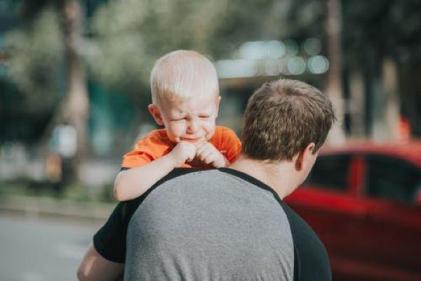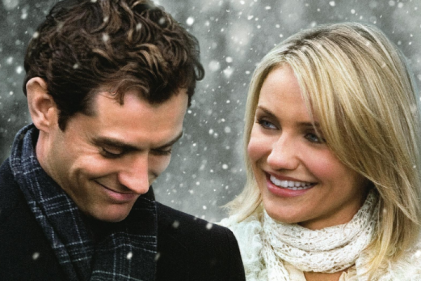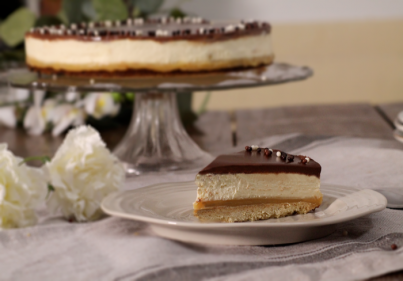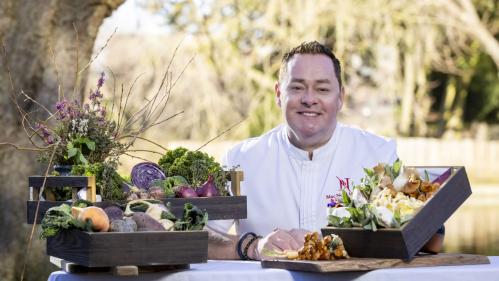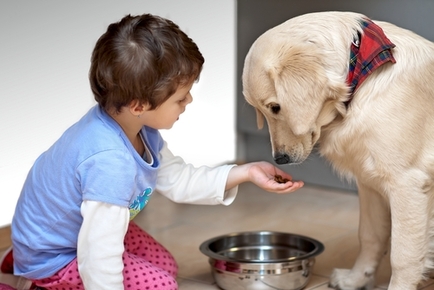 Many parents who share their home with pets have experienced the horrible realisation that your child has been helping themselves to the cat or dogs food! We go through a number of thoughts – will they get parasites? Will it make them sick? It can’t taste nice!
Many parents who share their home with pets have experienced the horrible realisation that your child has been helping themselves to the cat or dogs food! We go through a number of thoughts – will they get parasites? Will it make them sick? It can’t taste nice!
We all know that pets are fed human food by us, even though we are advised not to, so it’s easy to see why a curious toddler would think that the pet’s food is up for grabs too. In fact, the stronger a connection your child has with their pets (and this is a good thing), the more likely it is that the urge to try pet food will be there. So what can you do about it?
Well, when you encounter the problem try not to react strongly when you first find your child with their mouth full and their hands in the pet food or water bowls. A sudden outcry or even laugh will more often that not increase the allure of the forbidden and will only encourage further experiences or will give your child such a fright that they may become afraid of the pet. Try to make light of the situation and divert your child’s attention until you can get the pet food away. Do not pause to take a photo or video it for YouTube – deal with the situation immediately.
Stopping children eating the cat’s food is a problem that’s fairly easy to solve by simply moving the dishes somewhere out of reach but that is still available to your cat. Dog food on the other hand is a very different story since most dogs and puppies won’t be able to and should not be allowed to jump up onto a high spot to eat or drink. Also, with dog food dishes there are some safety issues. Dogs can be quite protective of their food bowl and even the most mild mannered and friendly of dog may have an issue with another ‘pack member’ investigating his bowl. Many dog bite situations in the home are related to food possessiveness and can be easily prevented but careful management at feeding times.
If moving the dogs food dish is not an option restrict the pet food eating by only feeding enough for one sitting at a time, keeping your child occupied until your pet is finished. A stair gate placed across the kitchen door will restrict the child access and will give the pet the much needed private time to enjoy their meal. If your kids are old enough to understand then you can explain about the special food needs of pets and humans and why pets need pet food and people need people food.
There are some basic good pet parenting tips which will make having a child/pet household work well. Firstly, keep your cats and dogs wormed regularly as this will cut down on the risks of parasites such as worms which can cross species and infect your child. It is also best to keep your pet regularly de-flead as well as up to date with the annual vaccinations.
Teach or remind your children about the importance of washing hands and monitor regularly to ensure they are keeping up a high standard. Wash your pet’s food and water bowl before each feed as you would do your own plates – pets like to eat and drink out of clean crockery too and clean the floor around the pets feed area on a daily basis as well. Try to feed your dog and cat dry food as this is less likely to attract flies and is actually better for the pet.
In the garden, pick up the dog poo from the garden once every day (or so) and if you can find where the cat is using as a toilet remove poos regularly. If your cat uses a litter tray then make sure this is emptied at least once a day, ideally twice and wash the tray once a day. Having a few clean and made up litter trays stacked on top of each other will make cleaning easier and will always guarantee that there is a useable tray for the cat.
Finally, enjoy your kids and the pets and the interactions and antics which go on between them. Having access to pets is one of the most satisfying and rewarding childhood experiences we can give our children. Pets teach children about empathy and respect for others feelings and needs and it is my experience that children who grow up with pets are more outgoing and balanced.
For any more information or advice please feel free to contact Gillian Bird at the Dublin SPCA.


